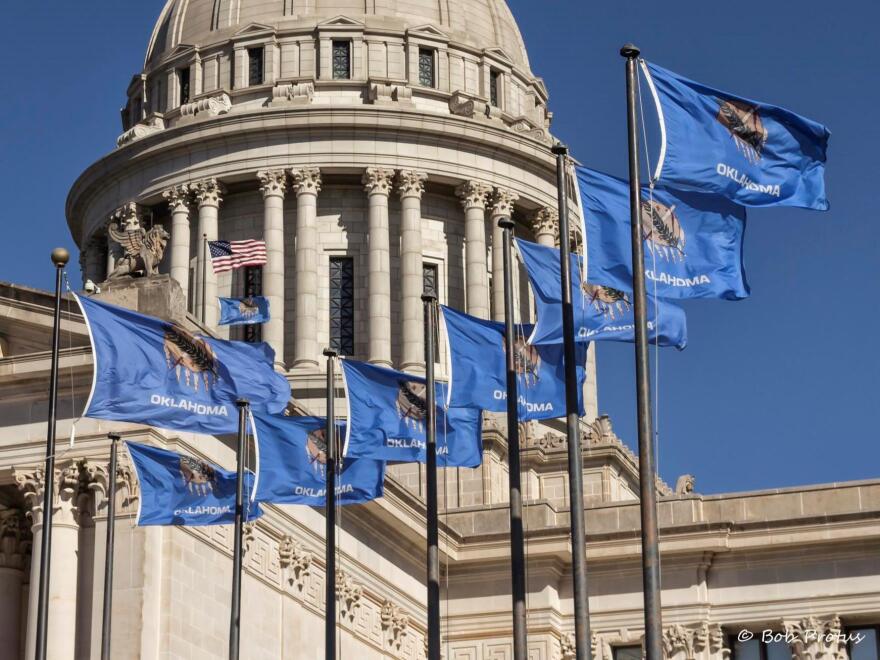The deadline for legislators to request bills and joint resolutions for drafting passed on Friday, December 9. We look at the next steps in the process as lawmakers prepare for the 2023 legislative session.
TRANSCRIPT
Dick Pryor: This is Capitol Insider - taking you inside politics, policy and government in Oklahoma. I'm Dick Pryor with Quorum Call publisher Shawn Ashley. The period for legislators to request bills for the 2023 legislative session is over. Shawn, with the request submitted, what happens next to determine whether the bill can eventually be filed?
Shawn Ashley: That's entirely up to the legislator who submitted the request. Upwards of 80% of the bills requested each year are filed. Now, a few things may lead a legislator to decide not to file a particular bill. They might be working with certain stakeholders on an issue, for example, and may find that more work needs to be done, or another legislator may file something identical or similar. So, they choose to work with that particular lawmaker. In any case, the legislator who made the request makes the final decision about whether the bill will be heard or not. But it's then up to legislative leadership to decide whether it moves forward.
Dick Pryor: Yeah, this is all part of a long and involved process. Once requests are made, how are bill's crafted into the version that will be filed for legislative consideration.
Shawn Ashley: That's where legislative staff comes in. They will research the issue and work with the lawmaker to come up with the specific language that will be in the bill. And it's not just the words, but how they are incorporated into state statute. Sometimes that means writing entirely new law. Other times it means amending existing law, changing what's already there. And in some cases, they may have to repeal or eliminate an existing statute. It's really both a science and an art.
Dick Pryor: Sure is. What's the deadline for filing bills for the next legislative session?
Shawn Ashley: Lawmakers have until January 19th to file most bills and joint resolutions for consideration during the 2023 legislative session. There are exceptions, of course. Appropriation bills, for example, and joint resolutions approving or disapproving administrative rules, are exempt from the deadlines. Then the House Speaker and Senate President Pro Tem are permitted to file a bill at any time, and they can also prevent a member to do so as well, although they rarely do.
Dick Pryor: Later this month, the State Board of Equalization will meet to make their first certification of funds available for appropriation in the session to come. Why do they meet in December, rather than waiting until after the holidays?
Shawn Ashley: That is an interesting question, and the answer is in the Oklahoma Constitution. It requires the board to meet no more than 45 days before, but not less than 35 days before the legislature convenes. And that almost always guarantees it's going to be the week of Christmas or the week of New Year's. The Constitution also requires the board to meet again in February, not long after the legislature convenes. That meeting gives legislative budget negotiators and the governor the number they will use in their budget talks. But the December meeting gives the governor, and for that matter, the public a number to use in the State of the State address. Otherwise, the governor could promise a chicken in every pot when the official expectation is there will not be that many chickens.
Dick Pryor: Okay. So now we know. Governor Kevin Stitt continues to push for members of the U.S. Armed Forces to not be required to take the COVID vaccination. He calls the federal mandate harmful and anti-American, but members of the military are required to take multiple vaccinations, and it's not viewed as violating personal freedoms. Why is the COVID vaccination for the Armed Forces still an issue?
Shawn Ashley: Well, I think the answer is really twofold. First, Stitt and other Republican governors have been fighting with the Biden administration for nearly two years over the Armed Forces vaccine mandate. They even went to federal court, but they lost. So, if Congress includes a prohibition on the vaccine mandate in the National Defense Authorization Act, which it appears that it will, they can turn that loss into a victory. Second, Republican governors are concerned about the impact the vaccine mandate could have on National Guard members, specifically their numbers. In a November 30th letter, they wrote, “As governors, our ability to respond to natural disasters and conduct emergency operations is contingent upon the strength and size of our National Guard units.”
Dick Pryor: Okay. Thank you, Shawn.
Shawn Ashley: You're very welcome.
Dick Pryor: And that's Capitol Insider. If you have questions, email them to news@kgou.org or contact us on Twitter @kgounews and @QuorumCallShawn. Until next time, with Shawn Ashley, I'm Dick Pryor.





